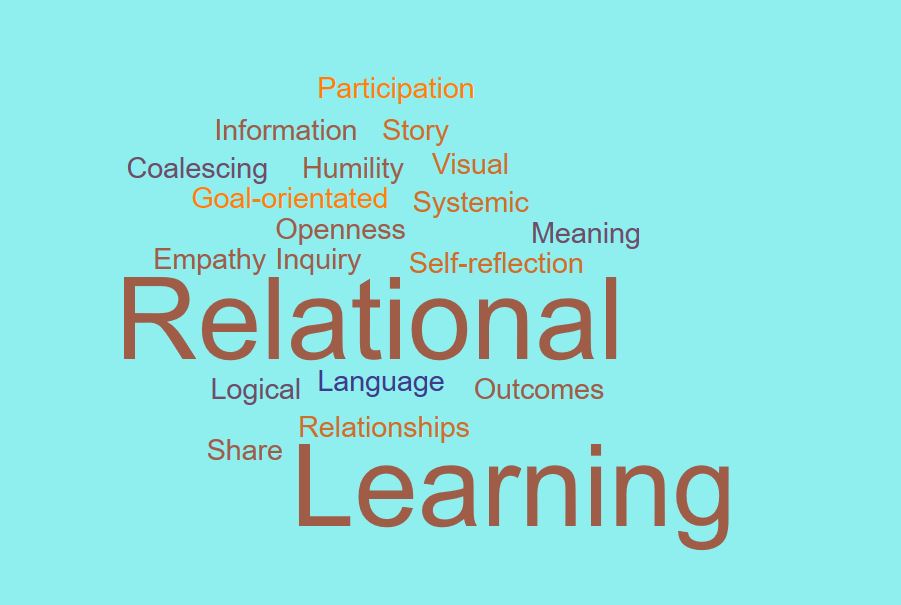Practising Change Together – Reflections
The Evaluation Network Scotland (ENS) held a different kind of event on 12th September 2019 that provoked a great deal of discussion and debate.
ENS has been hosting quarterly events for a couple of years now but has always been keen to challenge our evaluative thinking. We asked Cathy Sharp from Research for Real to facilitate a session on 5th Generation Evaluation, to explore appreciative and collaborative evaluation.
Twenty-two of us took part in what turned out to be a refreshingly different way of thinking, reached via lots of detailed discussions with our neighbours, not least over our varied responses to a series of prompts about what it means to move towards 5th Generation Evaluation. A good time was had by all and we went away with lots to think about, including how we could generate such a buzz again at future ENS events.
Cathy’s reflections on the day:
It really was quite a different event to those I’ve attended over the years. At previous events, I felt I’d detected an appetite for more honest conversations about our evaluation practices and about what new forms of developmental evaluative thinking can offer.
Two quotes over twenty years apart help to set the scene:
“As we face more and more that is unknown and not capable of being understood or controlled, we must approach learning and change as relational and improvisational processes. This inevitably means building cultures that support new forms of collaborative inquiry and action research.” (Susan Weil, 1997)
“People use their creativity and generate adaptive solutions that make sense locally. The articulations, workarounds and muddling-through that keep the show on the road are not footnotes in the story, but its central plot. They should be carefully studied and represented in all their richness.” (Trish Greenhalgh and Chrysanthi Papousti, 2018)
On the day, as the facilitator, my concern was to practice what I preach, so I tried to make sure I didn’t talk for too long at the start and that people had a chance to talk to each other as much as possible. They engaged with some pretty complex and often quite challenging material, but the buzz in the room soon told me that it was working as I’d hoped.
We looked in more detail at the provocations or prompts on page 53-55 of my report, “Collective leadership: Where Nothing is Clear, and Everything Keeps Changing: Exploring New Territories for Evaluation” (November 2018), and I was pleased that these seemed to work as a practical tool. After reading the prompts, participants were encouraged to articulate their thoughts using a series of prompts, starting with their words of the moment, shown here in this graphic. If these words intrigue you, do dive into the rest of our Unfolding Stories to see what else was on people’s minds on that Thursday evening and of course, the full report is worth a read too.

